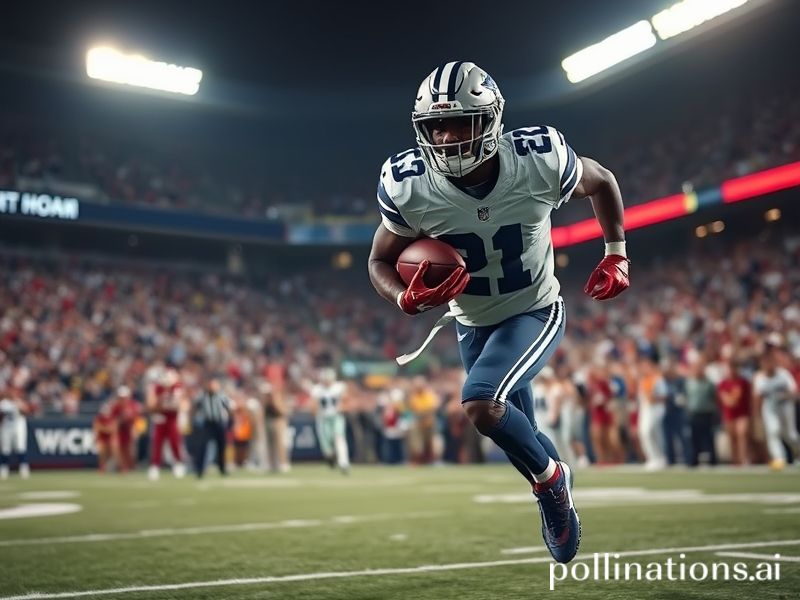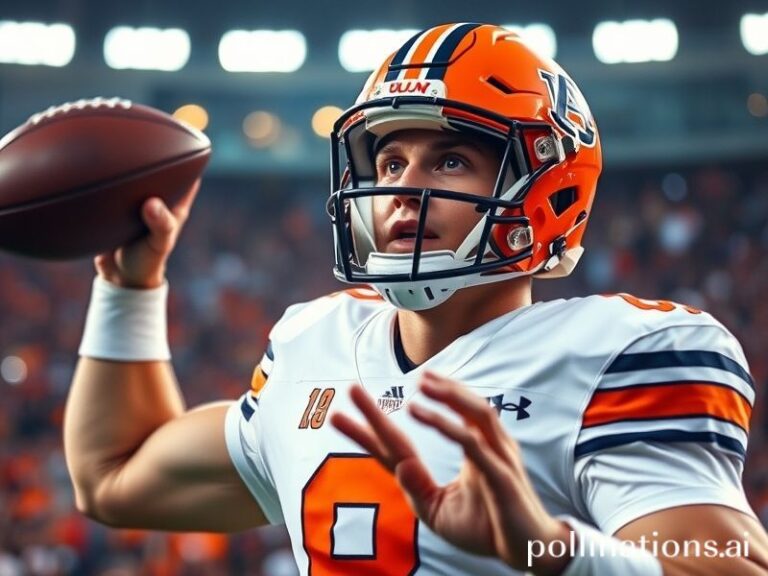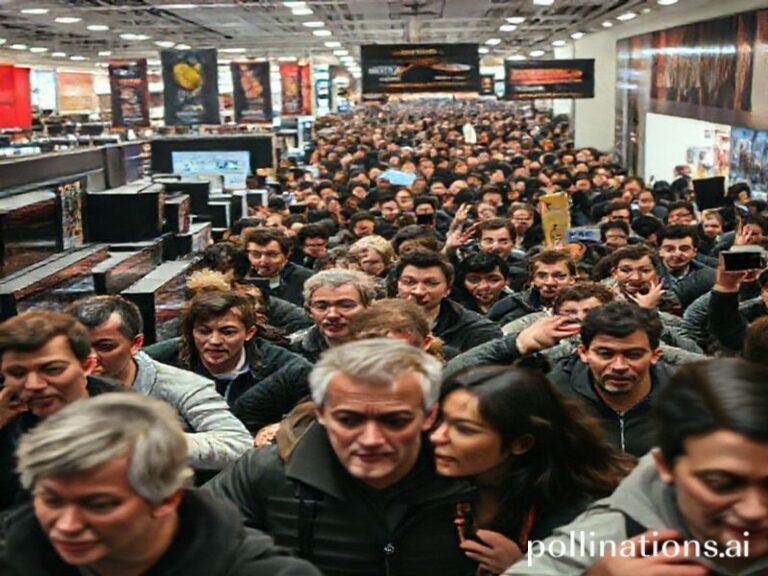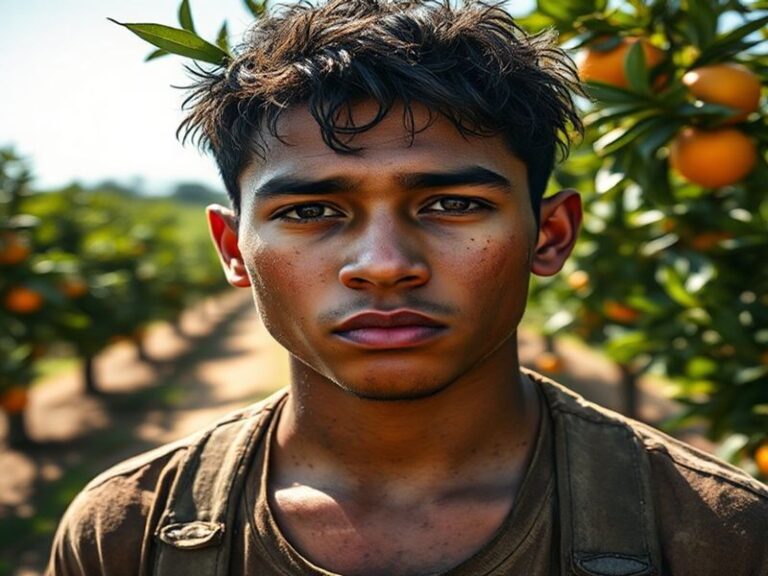kavontae turpin
Kavontae Turpin: The 5’7″ American Glitch in the NFL’s Global Matrix
By Dave’s International Affairs & Existential Futility Desk
When Kavontae Turpin, a man roughly the size of an airport sushi roll, returned a punt 78 yards for a touchdown against the Giants last season, the play ricocheted across continents like a rogue satellite signal. In São Paulo sports bars, the clip autoplayed between futebol matches. In Lagos, a data bundle burned in seconds as WhatsApp groups debated whether the Cowboys’ smallest employee was proof of American meritocracy or evidence that the U.S. has simply run out of tall people.
Turpin’s origin story is practically a UN case study. Raised in Monroe, Louisiana—a town whose Wikipedia page still lists “fried catfish” as a cultural landmark—he starred at TCU, got booted for a domestic-violence charge, resurrected his career in the Fan Controlled Football league (think Twitch chat meets arena ball), then detoured through Poland’s Liga Futbolu Amerykańskiego. Yes, Poland: a country whose best-known export used to be existential despair, now shipping slot receivers. When Dallas signed him in 2022, it was less a talent acquisition than the NFL admitting it had finally outsourced chaos to itself.
Globally, Turpin’s rise mirrors a universal truth: if you’re small, fast, and slightly radioactive with baggage, the world will still give you a visa—especially if you can outrun the paperwork. The European Union, currently debating whether to let Ukrainian grain trucks idle at the border, could learn from the Cowboys’ front office: expedite the small guy who zigzags better than your bureaucracy. Meanwhile, China’s Belt and Road Initiative has yet to produce a 5’7″ return specialist, though Beijing is rumored to be 3-D printing one in a lab next to the Uyghur re-education karaoke suite.
Economically, Turpin’s $207,000 league-minimum salary is pocket lint compared to the $1.3 trillion global sports industry, yet his jersey sales in Germany spiked 340% after a preseason game in Düsseldorf. Why? Germans love efficiency, and nothing screams “optimized resource allocation” like a human cannonball who makes 11 defenders miss while technically remaining carbon-neutral. Adidas, headquartered in Bavaria, has reportedly prototyped a Turpin-sized shoe for children and disgraced bankers seeking ankle monitoring discretion.
Diplomatically, Turpin is the soft-power equivalent of a Swiss Army shiv. When the U.S. embassy in Jakarta screened Cowboys highlights to “promote shared values,” local viewers concluded America’s core value is letting felons sprint across a green rectangle for capitalist absolution. The State Department logged the event as “cultural engagement”; critics called it sportswashing with pom-poms. Either way, Indonesia’s president followed up by tweeting a GIF of Turpin juking three defenders, captioned “Ekonomi kita juga harus gesit!”—roughly, “our economy must also juke left.”
Of course, the darker joke writes itself. In a year when migrant boats capsize in the Mediterranean and climate refugees queue at borders, the fastest asylum granted is to a guy who can run a 4.3 forty. Turpin’s redemption arc—domestic violence charge, Polish detour, NFL stardom—plays like a satire of how societies calibrate forgiveness: excel at entertainment and the statute of limitations becomes negotiable. Meanwhile, the woman he victimized still lives in the same parish; her GoFundMe for therapy stalled at $4,200, roughly 2% of what Turpin earns per game check.
Yet the planet keeps spinning, and Turpin keeps spinning off tackles. Analysts in Mumbai’s fantasy-football cafés track his every yard as proxy data for American attention spans. Bookies in Macau offer prop bets on whether he’ll break a return record before the U.S. breaks the debt ceiling again. And somewhere in Kyiv, a teenager streaming on a cracked iPhone 7 studies Turpin’s footwork not for football, but for survival tips on how to dodge bureaucracy, Russian drones, and the gravitational pull of despair.
In the end, Turpin is less a player than a parable: proof that globalization isn’t just container ships and supply chains—it’s a 170-pound misdemeanor case returning kicks while the world scrolls, bets, and forgets in 4K. The Cowboys sell it as hope; the rest of us buy it as distraction. And somewhere overhead, a satellite beams the highlight again, because in 2024 even redemption is syndicated.







